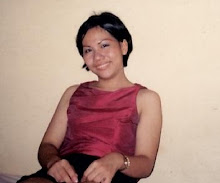http://www.hrw.org/campaigns/icc/whowhat.htm
http://www.globalissues.org/Geopolitics/ICC.asp
http://www.humanrights-geneva.info/ICC-Good-Progress-Amid-Missteps-in,3291
http://www.crimesofwar.org/icc_magazine/icc-intro.html
http://www.international.gc.ca/court-cour/index.aspx?lang=eng
http://www.economist.com/opinion/displaystory.cfm?story_id=11750485
http://www.usembassy.at/en/download/pdf/crs_icc1.pdf
http://en.wikipedia.org/wiki/International_Criminal_Court
http://portal.unesco.org/shs/fr/ev.php-URL_ID=6154&URL_DO=DO_TOPIC&URL_SECTION=201.html
http://www.economist.com/opinion/displaystory.cfm?story_id=11750485
Structure of the Court
Arabic
The Court is an independent institution. The Court is not part of the United Nations, but it maintains a cooperative relationship with the U.N. The Court is based in The Hague , the Netherlands , although it may also sit elsewhere.
The Court is composed of four organs. These are the Presidency, the judicial Divisions, the Office of the Prosecutor and the Registry.
Presidency
Judicial Divisions
Office of the Prosecutor
Registry
Other Offices
--------------------------------------------------------------------------------
Presidency
The Presidency is responsible for the overall administration of the Court, with the exception of the Office of the Prosecutor, and for specific functions assigned to the Presidency in accordance with the Statute. The Presidency is composed of three judges of the Court, elected to the Presidency by their fellow judges, for a term of three years. The President of the Court is Judge Philippe Kirsch ( Canada ). Judge Akua Kuenyehia ( Ghana ) is First Vice-President, and Judge René Blattmann ( Bolivia ) is Second Vice-President.
up
Judicial Divisions
The Judicial Divisions consists of eighteen judges organized into the Pre-Trial Division, the Trial Division and the Appeals Division. The judges of each Division sit in Chambers which are responsible for conducting the proceedings of the Court at different stages. Assignment of judges to Divisions is made on the basis of the nature of the functions each Division performs and the qualifications and experience of the judge. This is done in a manner ensuring that each Division benefits from an appropriate combination of expertise in criminal law and procedure and international law. The judges of the Court are: Philippe Kirsch (Canada), Akua Kuenyehia (Ghana), Judge René Blattmann (Bolivia), Georghios M. Pikis (Cyprus), Elizabeth Odio Benito (Costa Rica), Navanethem Pillay (South Africa), Sang-Hyun Song (Republic of Korea), Hans-Peter Kaul (Germany), Mauro Politi (Italy), Maureen Harding Clark (Ireland), Erkki Kourula (Finland), Fatoumata Dembele Diarra (Mali), Anita Ušacka (Latvia), Adrian Fulford (United Kingdom), Syvia Steiner (Brazil) and Ekaterina Trendafilova (Bulgaria).
up
Office of the Prosecutor
The Office of the Prosecutor is responsible for receiving referrals and any substantiated information on crimes within the jurisdiction of the Court, for examining them and for conducting investigations and prosecutions before the Court. The Office is headed by the Prosecutor, Luis Moreno Ocampo ( Argentina ), who was elected by the States Parties for a term of nine years. The Prosecutor is assisted by two Deputy Prosecutors, Serge Brammertz ( Belgium ) with responsibility for investigations and Fatou Bensouda (The Gambia) with responsibility for prosecutions.
up
Registry
The Registry is responsible for the non-judicial aspects of the administration and servicing of the Court. The Registry is headed by the Registrar who is the principal administrative officer of the Court. The Registrar exercises his or her functions under the authority of the President of the Court. The current Registrar, elected by the judges for a term of five years, is Bruno Cathala ( France ).
up
Other Offices
The Court also the Court includes a number of semi-autonomous offices such as the Office of Public Counsel for victims and the Office of Public Counsel for Defence. These Offices fall under the Registry for administrative purposes but otherwise function as wholly independent offices. The Assembly of States Parties has also established a Trust Fund for the benefit of victims of crimes within the jurisdiction of the Court and the families of these victims.
Saturday, August 9, 2008
Subscribe to:
Post Comments (Atom)

No comments:
Post a Comment